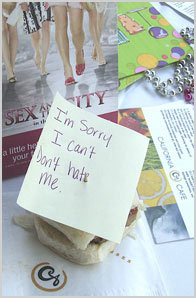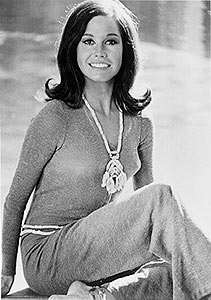The Good, The Bad, The Ugly: Film Remakes, Part Three
Published on March 30th, 2009 in: Issues, Movies, Retrovirus |By Michelle Patterson
Read Parts One and Two of this series.
Ahhh, it’s time to close the final chapter to the film remake saga. Such wonderful memories have been created in the past few months as a result of devotion to this glorious torture. Boring bears on the baseball field, terrible tweens taking on the Disney vault classics, and Nicolas Cage punching a series of women in the face—I can’t say that it’s been complete misery. The ability to admit when I’m wrong has never been something that I’ve shied away from; there is concrete proof that on rare occasion Hollywood can get it right when they take another crack at a story that has already been told. Ironically, this trilogy of articles ends on a bitter note right when it’s supposed to be time to laugh and adore one another.

The Cineplex has tried to teach all of us a couple of things about the wonderful feeling of being in love. After all, love is timeless; no true love story ever has an expiration date. Also, they try not to let us forget that laughter is the universal language; the best jokes can withstand any cultural and generational barriers. So, it is inevitable that Hollywood will try to remake romantic comedies as a sure moneymaking bet. In fact, the majority of comedy film remakes are those that seek the same broad audience. Regrettably, these particular movies are like the stalest of stale popcorn or even worse, they give off the odor of desperation and failure.
These films are eager to please with a young freshly-scrubbed cast and blatant attempts to update the film for the “modern age”: using e-mail instead of letters or jokes about text messaging. These are thought to be wise choices for the audience to be able to “get it” because the worst sin of all is to appear antiquated or possessing anything the kids could find passé. The bulk of romantic comedy lovers are still in high school, right? You can practically see the movie execs imagining the text from the note cards filled out by test market audiences: “OMG, I totally don’t get why they don’t just like text each other instead” or “Bo-ring!” and then scrambling to keep it in the now. Yet, if anything, these small flourishes detract from the story or are even entirely insignificant—and it shows.

In such a hurry to strike at a figure in the simplest way, these are the laziest of references. By the time the movies are released, new personalities have replaced the old ones, and because the jokes are mere slight strokes doing battle with too-broad stories, it’s like throwing a pebble against a giant ocean wave, and it barely makes a ripple. If you don’t believe me, go back and watch mid-period Sex and the City. The only episodes from the series that feel true are those that stray away from a frantic attempt to be ahead of the fashion curve and just tell a heart-breaking story about love or love lost in a funny way. It really is as simple as that. Now, watch a few episodes from The Mary Tyler Moore Show and tell me that show about a Midwestern girl isn’t more modern in its treatment of the mating game than four broads in New York City fretting over shoes and newly-named alcoholic beverages.
It hasn’t always been this way; in fact, comedies from bygone eras, in general, subtly showed the audience what we were really like—not what we should be like—or exposed the defects of popular personalities (both grand and small) in clever ways that weren’t rooted only in the time period. What other genre could have lampooned Hitler in such a scathing manner as Charlie Chaplin’s The Great Dictator or satirized the workforce in all its hypocritical glory like Billy Wilder’s The Apartment without coming off as self-important or congratulatory? You could apply most of the jokes from either film to our modern leaders and business executives today and it would still be pertinent. Preston Sturgess’s examination of love found, lost, and regained in The Lady Eve continues to be wicked and hysterical, 68 years later. If it was remade today, I’m sure it would take place on a Carnival sea cruise and involve more silicone-enhanced cleavage than the almost fully clothed courtship in the original 1941 film. And it would still be less scorching than its ancestor.
Pages: 1 2
Time limit is exhausted. Please reload the CAPTCHA.